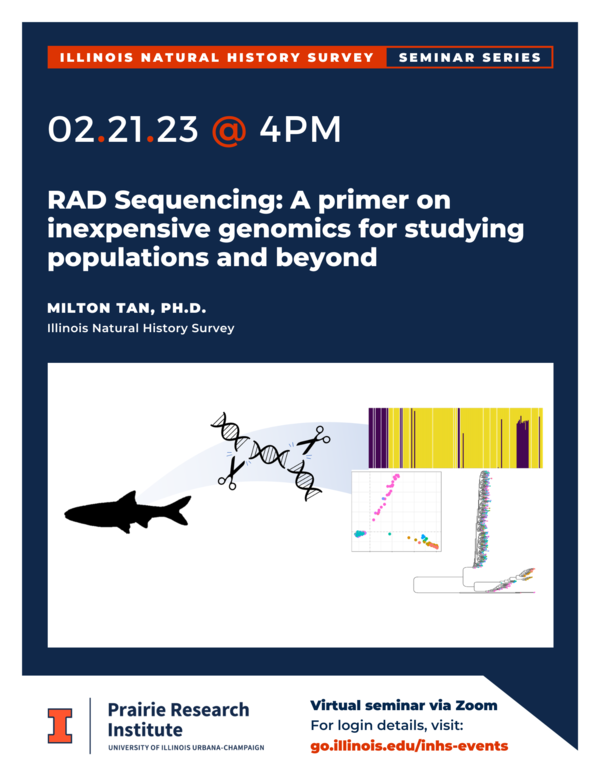
INHS Seminar - RAD Sequencing: A primer on inexpensive genomics for studying populations and beyond
- Event Type
- Seminar/Symposium
- Sponsor
- Illinois Natural History Survey Seminar Committee
- Location
- 1005 Forbes Natural History Building, 1816 S Oak Street, Champaign
- Virtual
- Join online
- Date
- Feb 21, 2023 4:00 pm
- Speaker
- Dr. Milton Tan, Assistant Research Scientist in Biodiversity Genomics, Illinois Natural History Survey
- Contact
- Eric Schauber
- schauber@illinois.edu
- Views
- 96
- Originating Calendar
- INHS Events
This seminar will be held in room 1005 Forbes Natural History Survey, 1816 S Oak Street, Champaign or on Zoom here | Meeting ID: 863 9644 4187 | Password: 331255
Abstract: The advent of next-generation sequencing has led to a genomic revolution in biology. Various genomic methods provide opportunities to sequence broadly across the genome to answer biological questions. Among these, RADseq has emerged as a leading method that allows for sequencing thousands of genetic markers for non-model organisms without a sequenced genome at relatively little cost per sample. These data can be used for studying diverse biological questions, such as effective population size, population structure, migration, species delimitation, phylogeny, and natural selection on the genome. This seminar is aimed at describing RADseq for the benefit of the INHS community to encourage broader application of genomics across labs. I will define RADseq and its pros and cons. I will also describe our implementation of RADseq by the INHS Conservation Ecological Genetics Lab and Biodiversity Genomics Lab, and summarize practical aspects of cost, lab work, and computational analysis. Finally, I will provide various examples of applications of RADseq based on published and preliminary research findings. As RADseq continues to become increasingly popular for its power to result in thousands of markers across the genome at low cost, there has never been a better time to apply genomics to natural history questions.